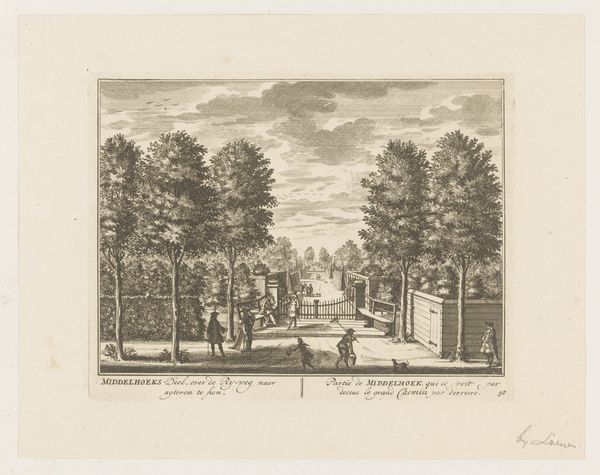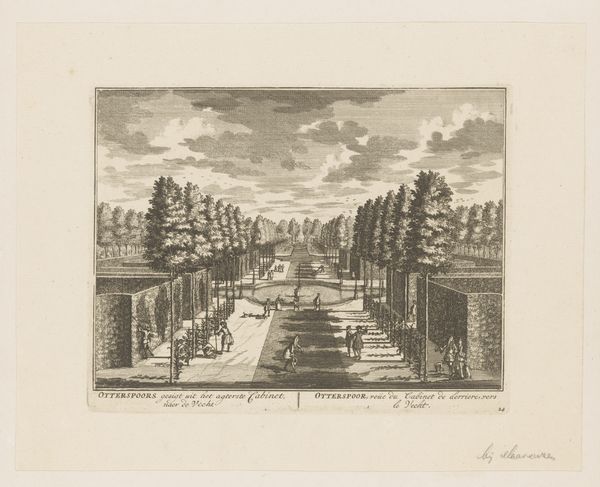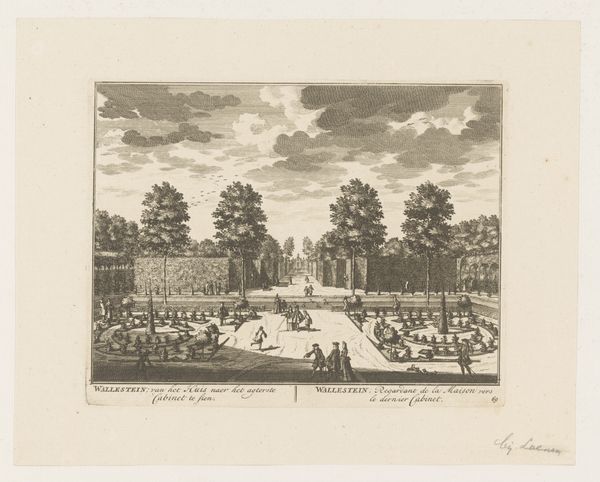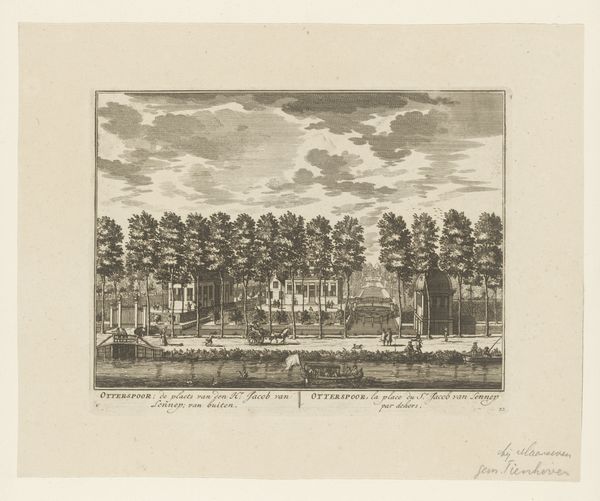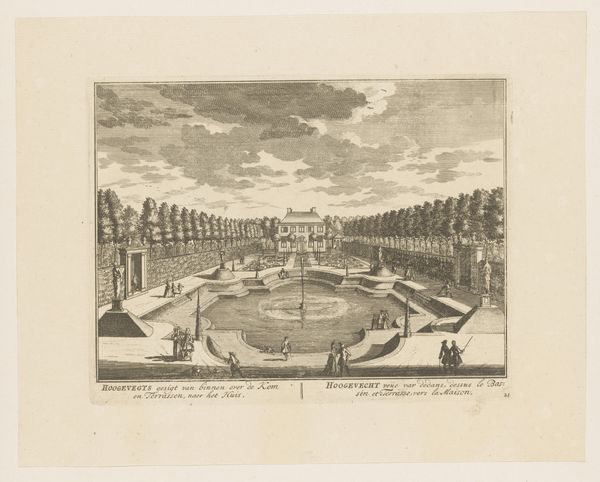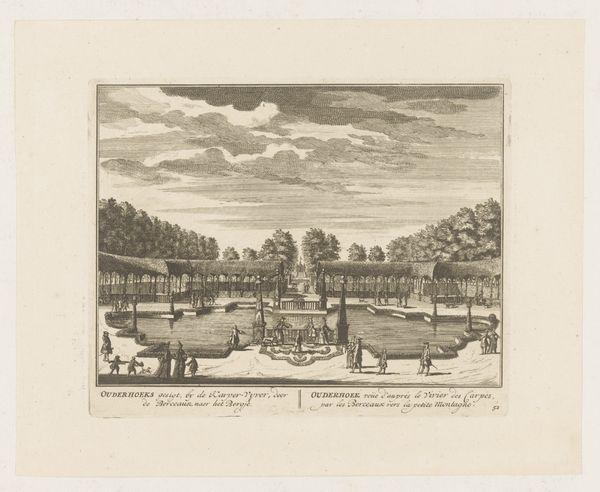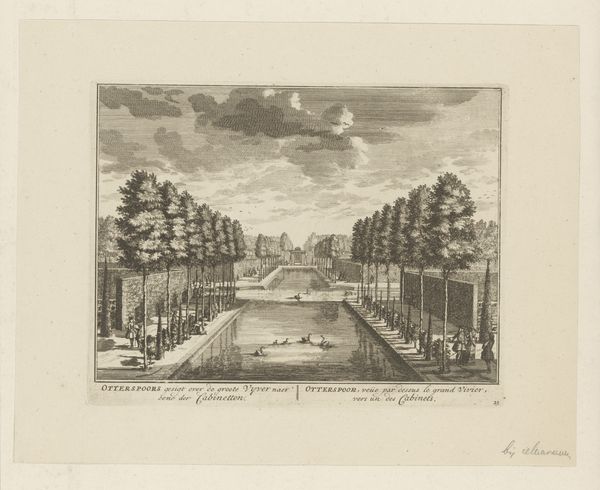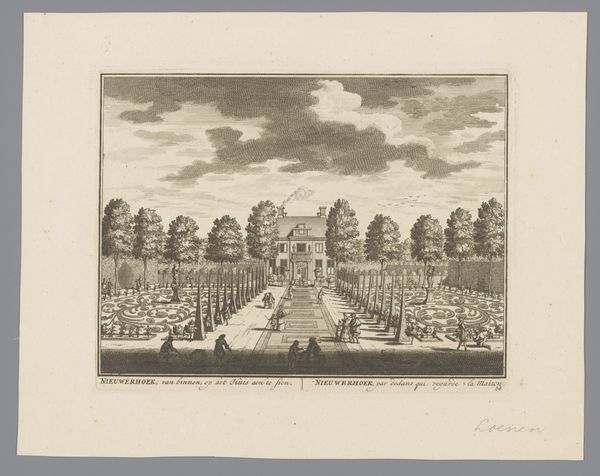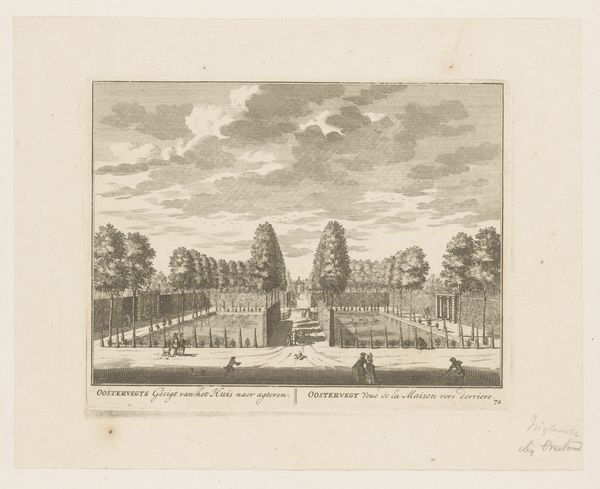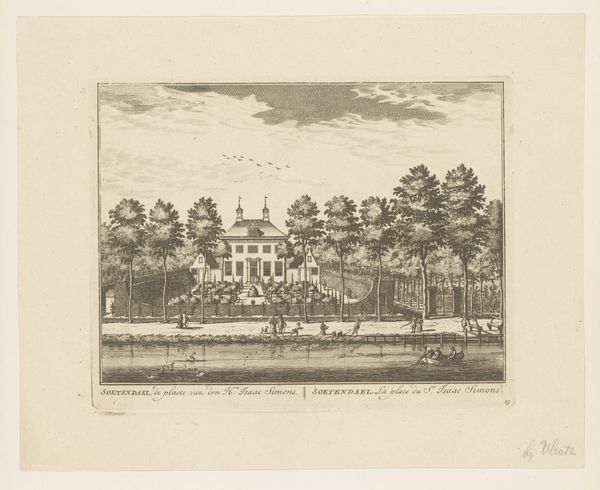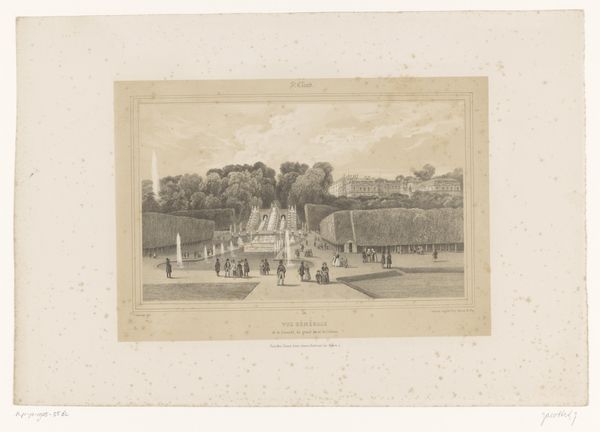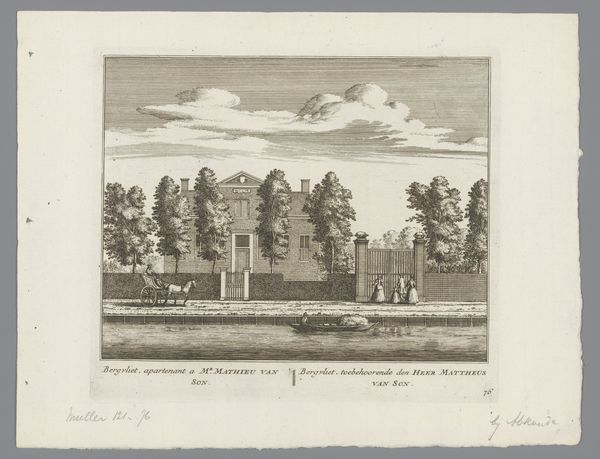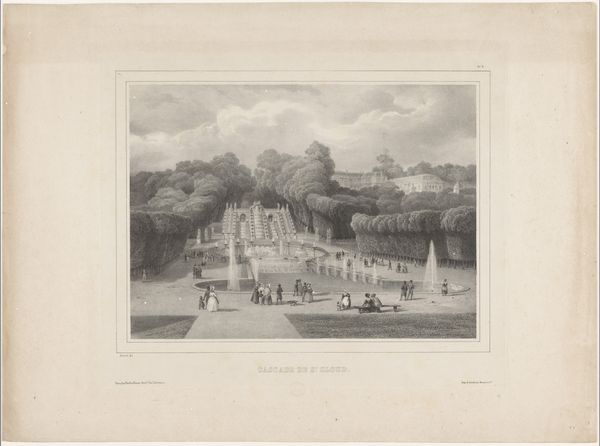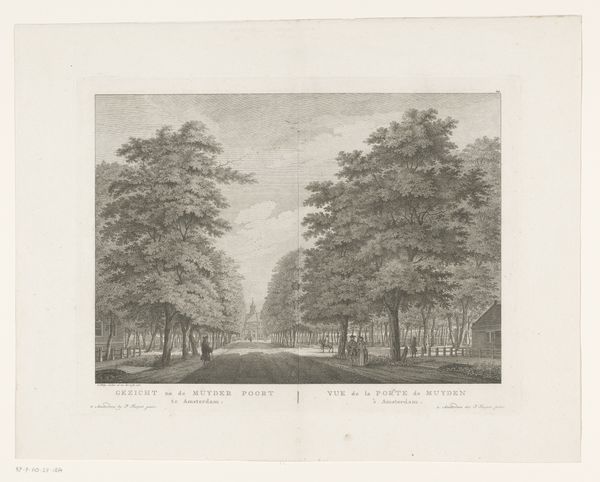
Gezicht op de tuin bij de buitenplaats Wallestein bij Loenen aan de Vecht 1719
danielstopendaal
Rijksmuseum
print, engraving
baroque
old engraving style
landscape
perspective
engraving
Dimensions: height 160 mm, width 204 mm
Copyright: Rijks Museum: Open Domain
Daniël Stopendaal created this print of the garden at Wallestein, near Loenen aan de Vecht, sometime between 1690 and 1726, the year of his death. It represents a meticulously ordered garden, a status symbol during the Dutch Golden Age. This kind of garden design, with its symmetrical layout and manicured greenery, reflects the Dutch elite's desire to display their wealth and control over nature. It's a visual statement of power and social standing, meant to impress visitors. The print also gives us a glimpse into the cultural values of the time. The emphasis on order and balance can be seen as a reflection of the Dutch Republic's political and economic stability. The formal garden design, with its straight lines and geometric shapes, mirrors the rationalism and scientific thinking that flourished during this period. Understanding this print requires looking into historical documents and social histories of the Dutch Golden Age, helping us decode the cultural and political meanings embedded within the artwork.
Comments
No comments
Be the first to comment and join the conversation on the ultimate creative platform.
